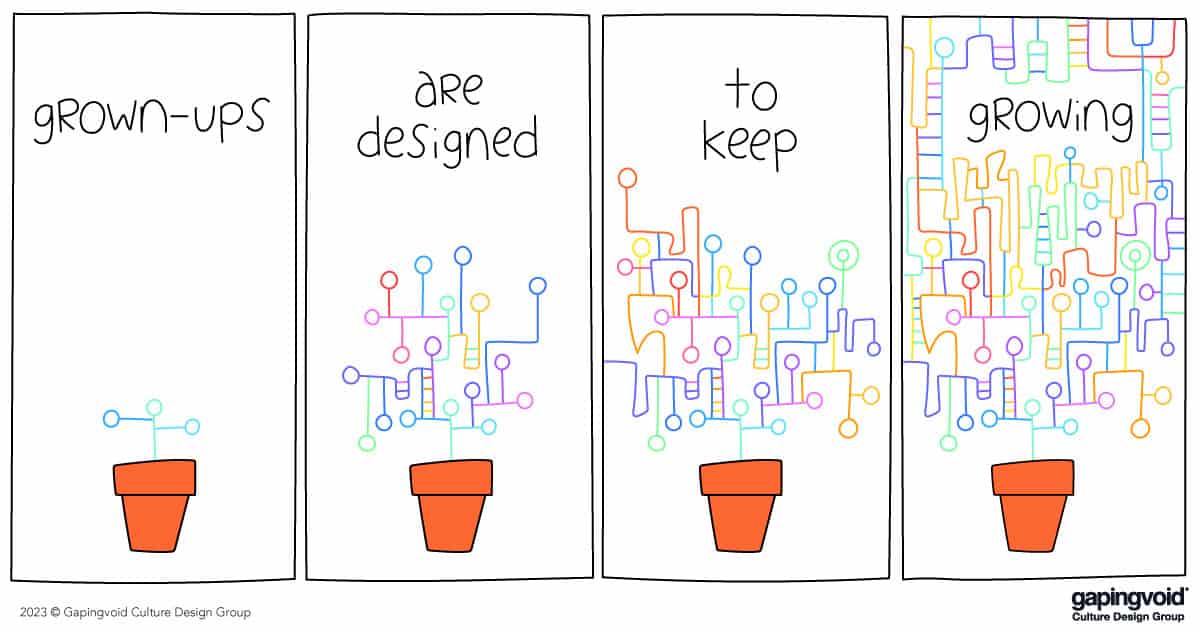
Back in the 1990’s in the fashionable West Village neighborhood in Lower Manhattan, some clever entrepreneurs opened up a small bakery on Bleeker Street.
No, it wasn’t your typical upmarket pâtisserie one would expect in such an upscale neighborhood, quite the opposite. Instead of fancy French gateaux, they just served the kind of treats your Grandma from Iowa would’ve made. Chocolate cake. Cherry pie. Muffins. Cookies. Then they started selling cupcakes, just like the homemade ones you had as a kid.
The cupcakes turned out to be a hit. Eventually they earned their place in the pantheon of early-2000s Manhattan-Cool, when they were featured in an episode of Sex And The City, with the main characters eating cupcakes outside the store. This made business really take off.
We’re talking about, of course, The Magnolia Bakery, which is famously credited for starting the national cupcake craze a decade or two ago.
Since then, the bakery has gone all corporate (they’re selling in grocery chains now) and the cupcake craze has faded, but that’s another story.
We can guess why it was so successful. It tasted like home, like being eight years old again- perfect comfort food for a young, overworked, sometimes homesick, always stressed-out recent arrival to the city. It takes one back to a simpler, kinder time…
What’s interesting to us is not so much the store itself, but what it represents.
“Luxury regression,” perhaps?
Is this trend to recreate or prolong childhood a good thing? Not according to Pop Dust and their article, “From Baby Groot to Baby Yoda, Why Infantilized Characters Are Cultural Setbacks.”
“In his 2014 article “The Death of Adulthood in American Culture,” The New York Times’ film critic A.O. Scott critiques film and TV of this millennium for demonstrating that ‘adulthood as we have known it has become conceptually untenable.’ He asks, ‘Who or what killed adulthood? Was the death slow or sudden? Natural or violent? The work of one culprit or many? Justifiable homicide or coldblooded murder?’ As a critic of the media landscape, he says he’s watched ‘over the last 15 years as the studios committed their vast financial and imaginative resources to the cultivation of franchises… that advance an essentially juvenile vision of the world.’”
On one level, this regressive stuff looks like the decay of civilization (albeit a slight exaggeration), at least to intellectuals like A. O. Scott. However, there’s also an upside.
The reason people “grew up” quickly for the majority of human existence is because death, disease, and starvation were ever-present. But for many of us, that’s not really our world anymore, and in historical terms we’re only just getting used to the new one.
The truth is we should never stop growing. Which means we never really grow up. Today’s world is increasingly complex compared to our (mostly) rural poor ancestors. So to keep reinventing ourselves, we must, as Picasso said, “always remain a child.” Always retain the ability for play, the capacity for amusement, and the capacity for invention.
The best tools start out life as toys for the mind. Which was exactly what those Magnolia cupcakes were. Edible playthings for us all.



